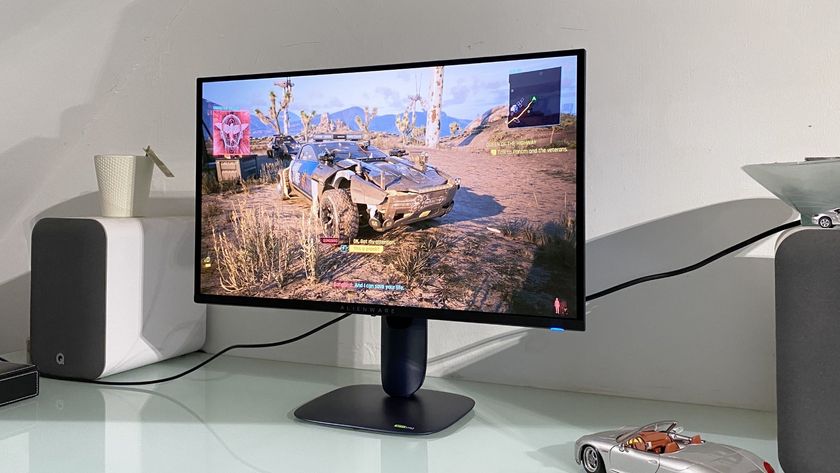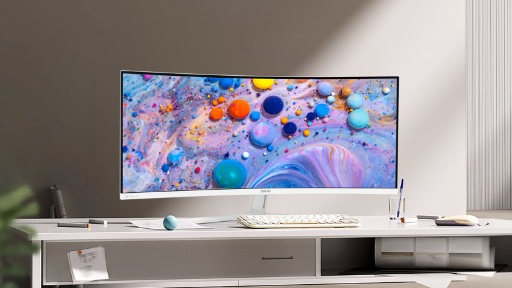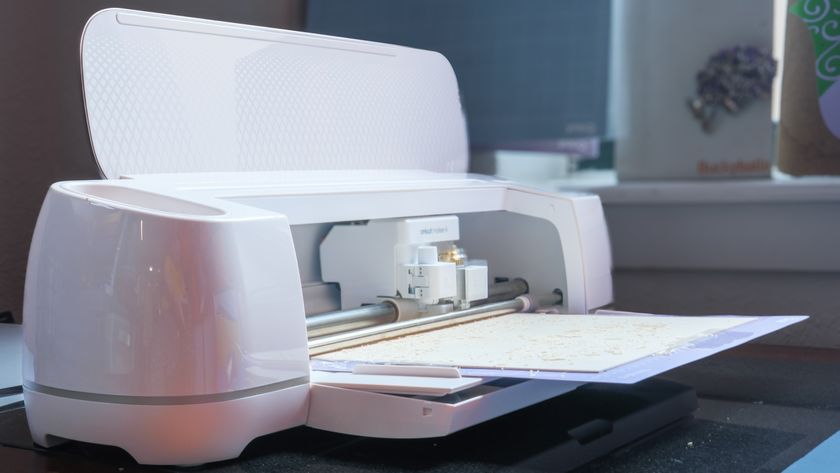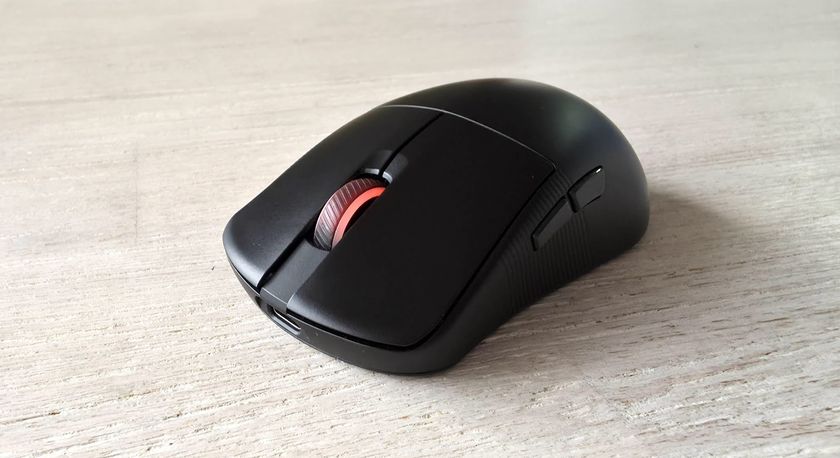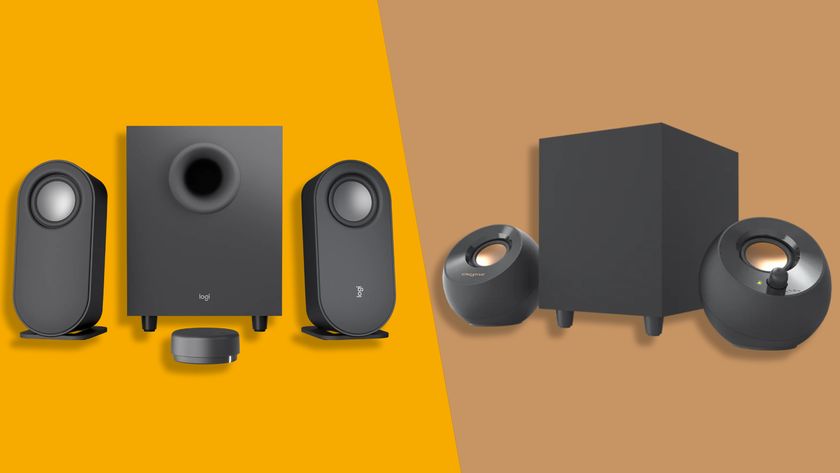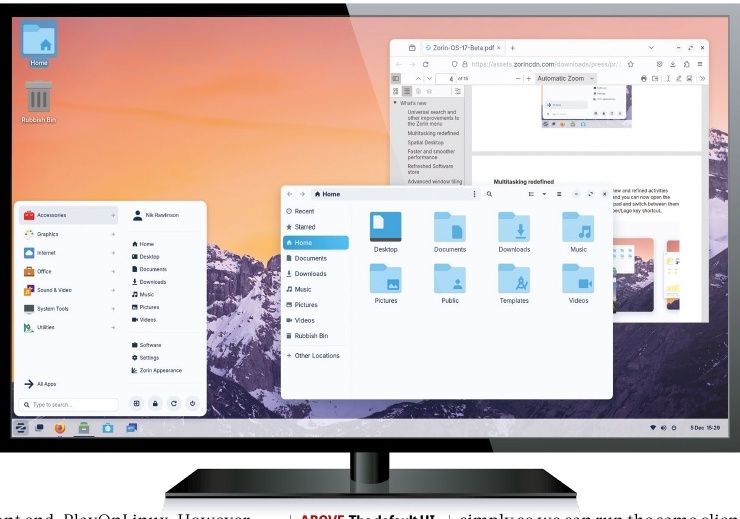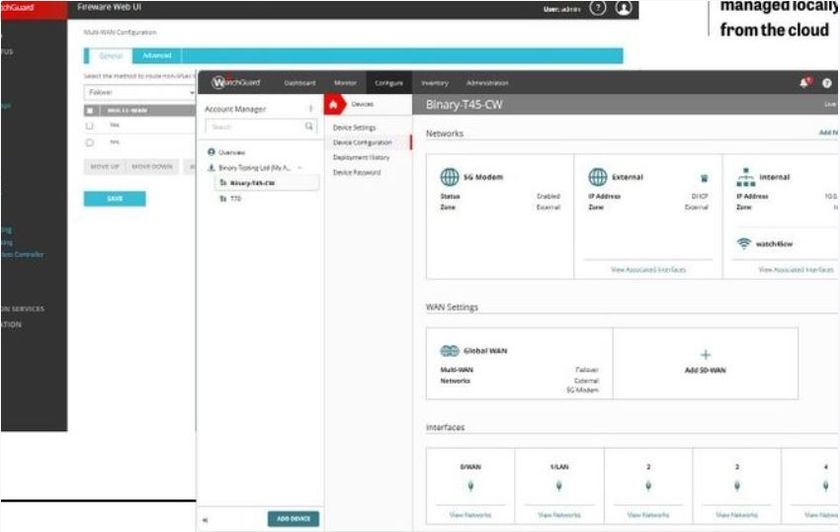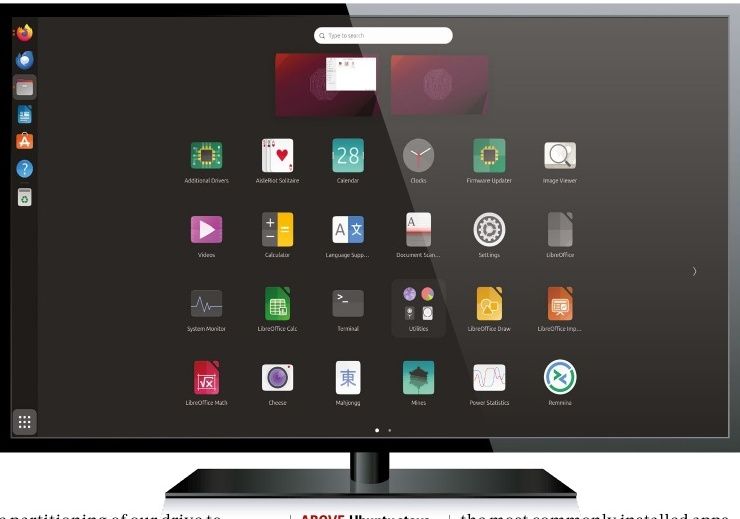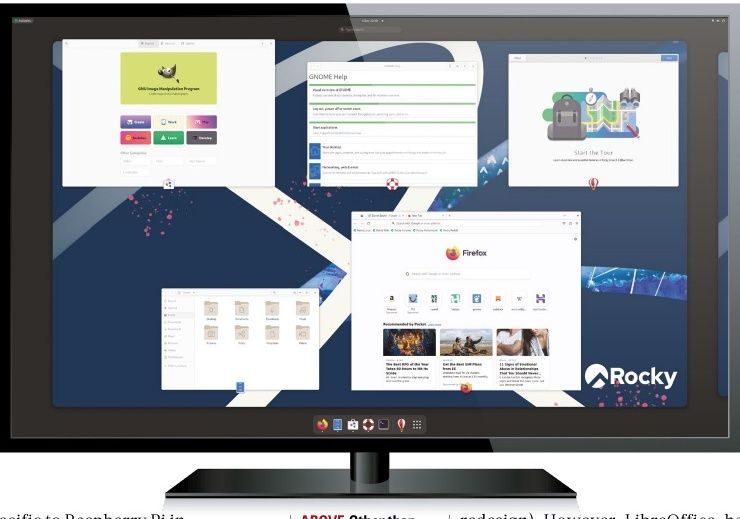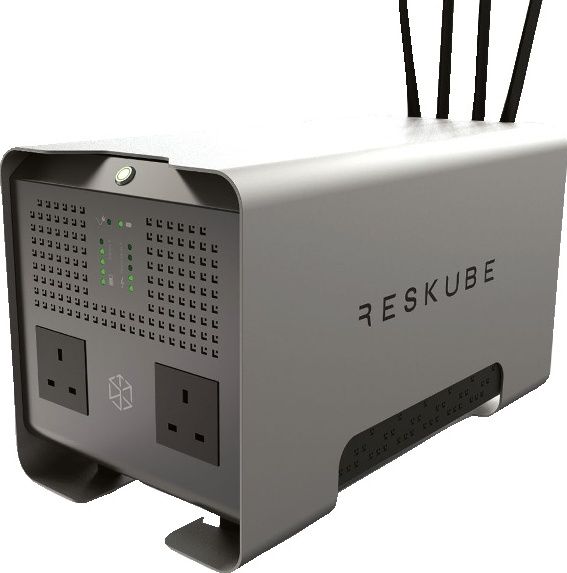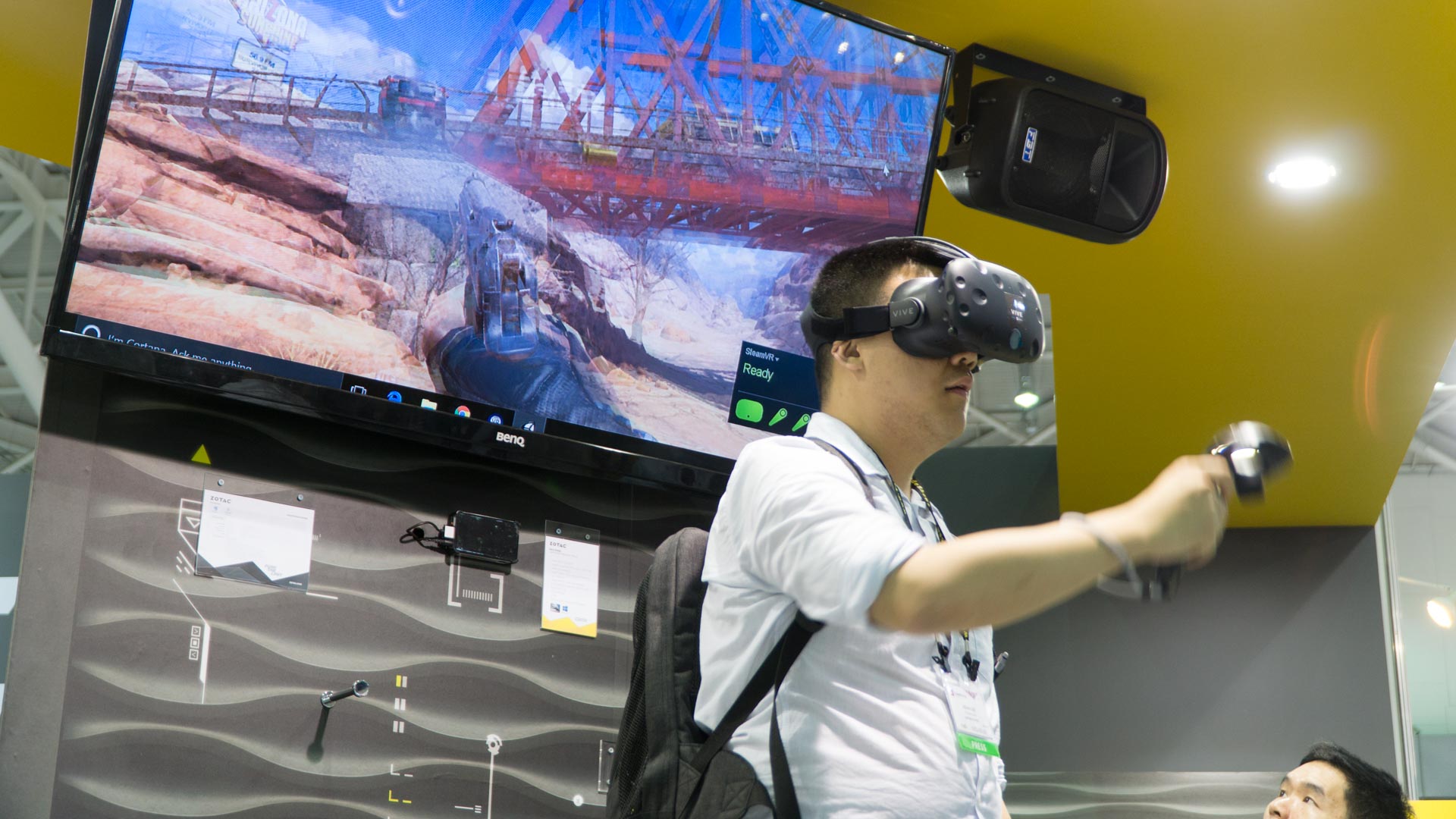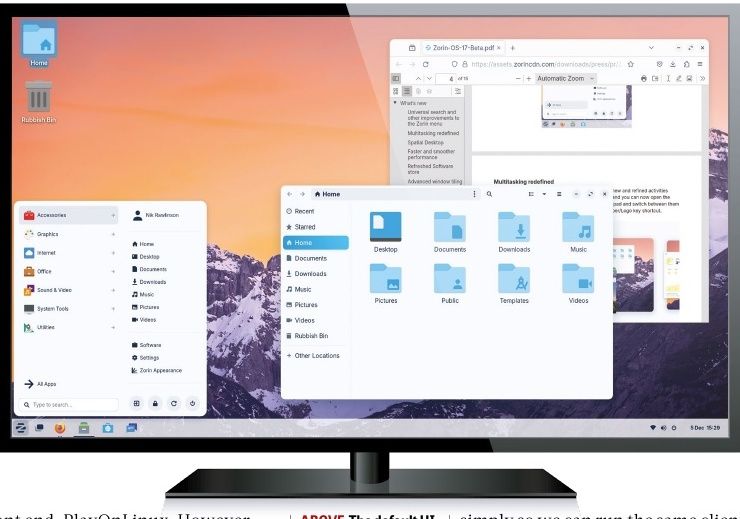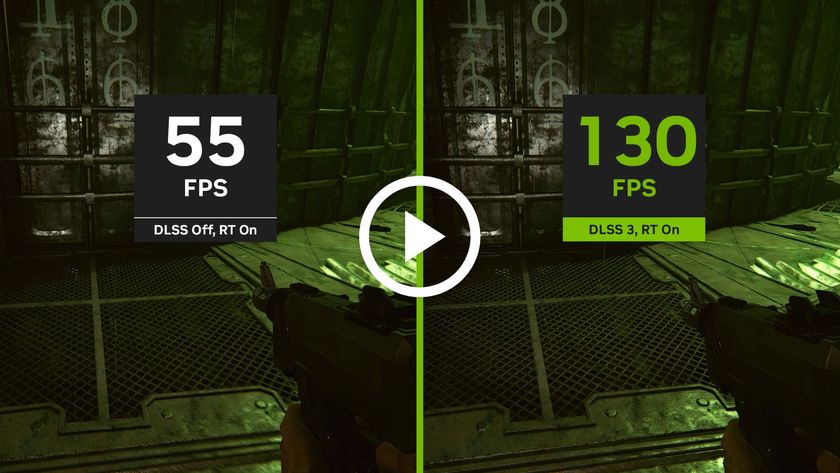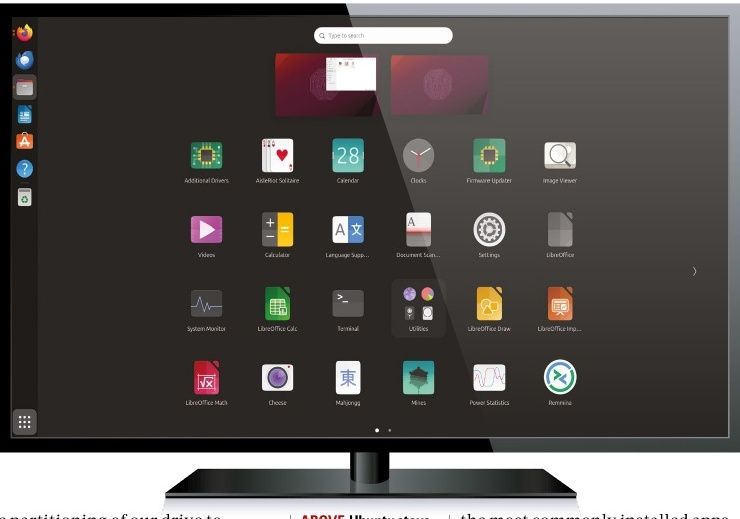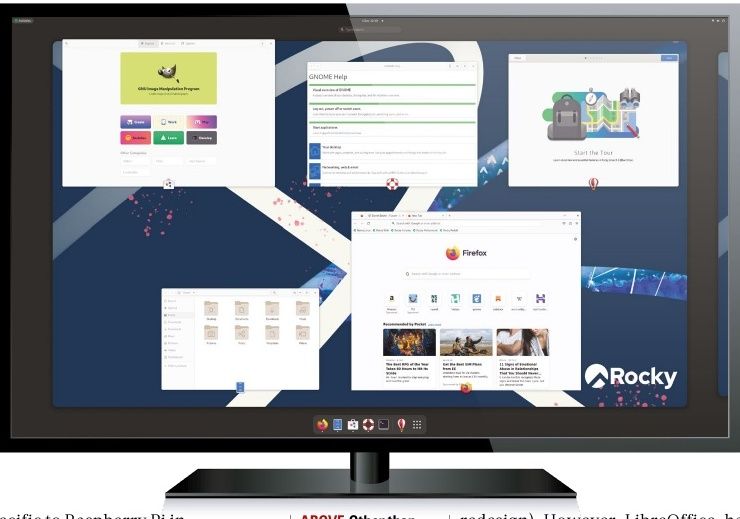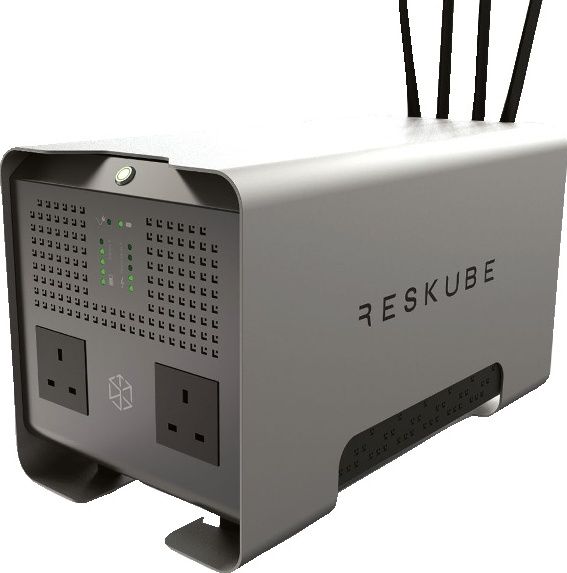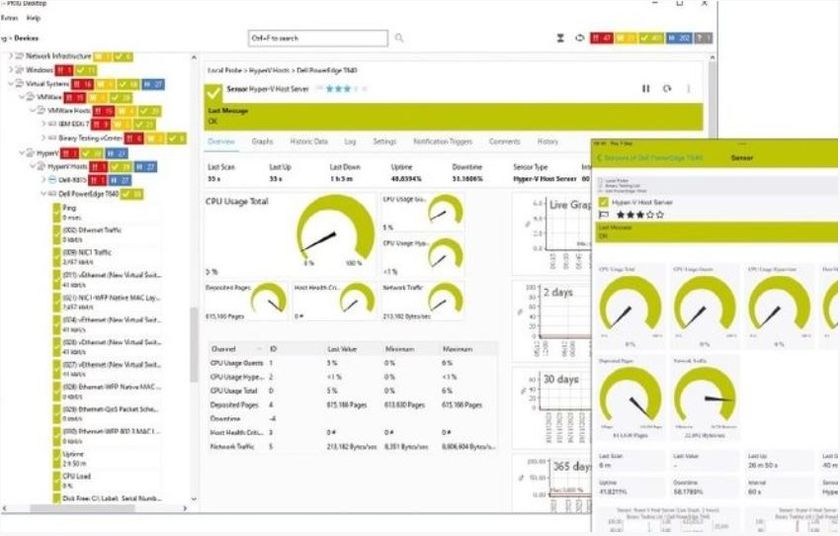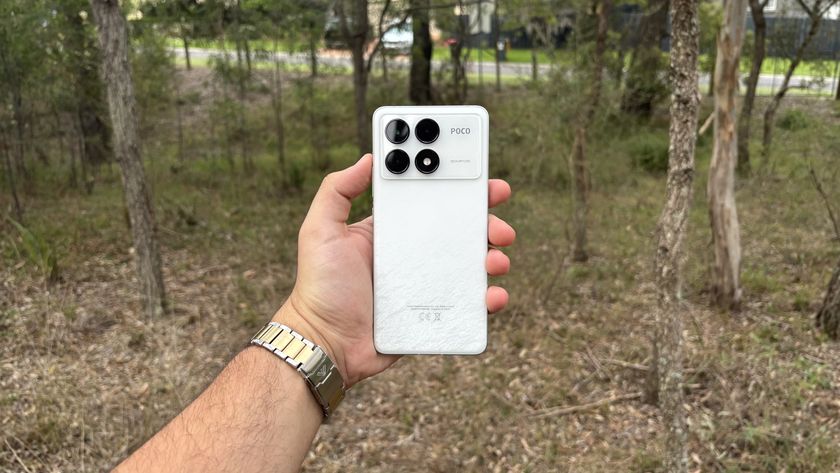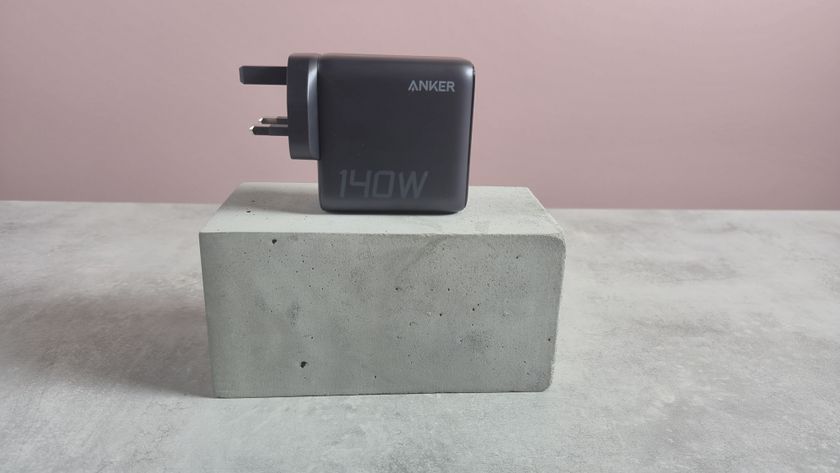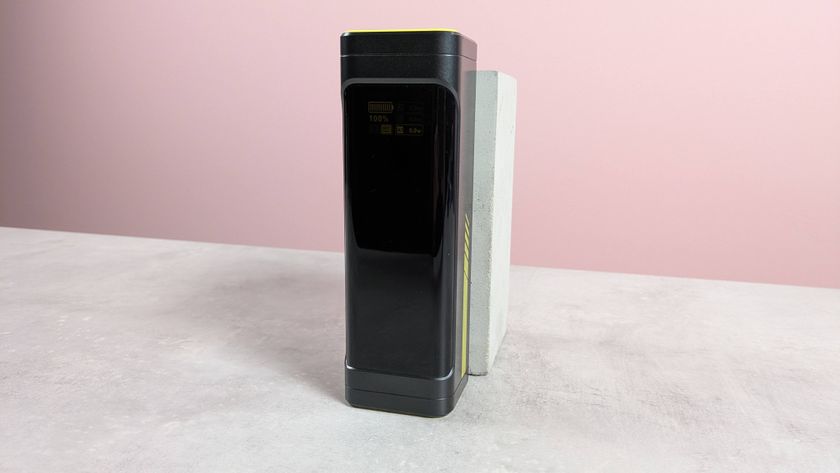Early Verdict
Zotac's VR Backpack offers better battery life and greater performance, but it's hard not to say it's not just simply a computer in a bag.
Pros
- +
All desktop-grade parts
- +
Longer battery life
- +
Comfortable fit
Cons
- -
Essentially a PC in a bag
Why you can trust TechRadar
MSI may have just announced its Backpack PC, but Zotac has been way ahead of its untethered virtual reality game since April. Fittingly named the VR Backpack, it's a slightly more capable system, but it's also a little rougher around the edges.
For starts the VR Backpack isn't quite as polished as the MSI Backpack PC and its custom made hard case shell. Instead, Zotac essentially created a shrunken Mini ITX PC, threw into a mesh bag with a huge battery, hooked up a HTC Vive and call it a day.
I'm being a bit coy here but there are definitely some rough edges to the VR Backpack including slightly exposed heatsinks. Of course, this is only a prototype unit and Zotac plans on iterating on it in the future.
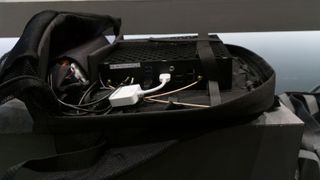
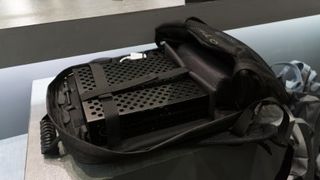
Packing desktop power
Aesthetics aside, Zotac's take on the portable VR-ready system is a bit more powerful thanks to using a desktop grade Intel Core i5-6400 CPU as opposed to the Backpack PC mobile-based Core i7. That said, the two machines share the same MXM version of a Nvidia GTX 980, making them more than capable of powering a VR experience.
Zotac's solution also lasts a bit longer – up to two hours of immersion – thanks to a massive 60,000mAH battery that's as big as a sub/hoagie/hero and easily weighs three pounds just by itself. The system also comes with two 180-watt power adapters delivering energy to the components and the graphics card by itself.
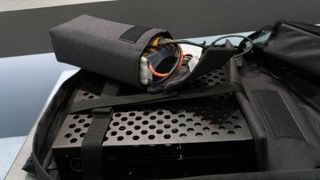

During my time with the unit on a stage in the middle of Computex 2016 – I'm not joking about the stage – the VR backpack afforded me with a silky smooth VR experience while playing through Valve Lab collection. Like the Backpack PC, getting rid of the cable makes you so much more mobile in virtual reality.
As for how the wearing the VR Backpack actually feels, it's surprisingly and remarkably more comfortable. Though this is largely because Zotac uses a regular backpack to tote around its VR-ready rig.

Early verdict
Despite being largely jury rigged, Zotac's VR Backpack works astonishingly well. That said, it's unlikely we will see a consumer version come to market in the near future. The computer hardware maker is first focusing on selling its wearable VR platform to theme parks and other interactive virtual reality experiences like The Void first.
Kevin Lee was a former computing reporter at TechRadar. Kevin is now the SEO Updates Editor at IGN based in New York. He handles all of the best of tech buying guides while also dipping his hand in the entertainment and games evergreen content. Kevin has over eight years of experience in the tech and games publications with previous bylines at Polygon, PC World, and more. Outside of work, Kevin is major movie buff of cult and bad films. He also regularly plays flight & space sim and racing games. IRL he's a fan of archery, axe throwing, and board games.
What is a hands on review?
Hands on reviews' are a journalist's first impressions of a piece of kit based on spending some time with it. It may be just a few moments, or a few hours. The important thing is we have been able to play with it ourselves and can give you some sense of what it's like to use, even if it's only an embryonic view. For more information, see TechRadar's Reviews Guarantee.
